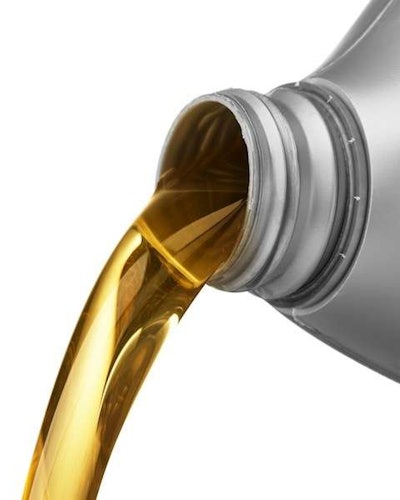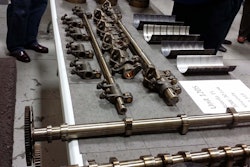More evolved engines need a more evolved oil — that’s the basic premise of the PC-11 (proposed category 11) diesel engine oil in the works by the American Petroleum Institute.
And that was also the basic premise of an international Shell Rotella press event here in Hamburg, Germany, Aug. 28 at one of just a worldwide handful of Shell Technology Centers, but with an even more specific message: Low viscosity oils will work for trucking, as long as the durability and engine protection ability of modern engine oils remains.
A half-dozen Shell managers and engineers reiterated and elaborated on the point, saying low viscosity oils are the basis for the next round of compliance challenges that face engine manufacturers — decreasing fuel consumption and, in turn, carbon dioxide emissions.
Viscosity (thickness, essentially) is a key element manufacturers will use in their quest to drive down fuel consumption, and Shell has been not only testing these new lubricants in their high-tech labs in Hamburg and elsewhere, but have been testing the products in the field, too.
The fuel savings they’ve seen start at about 1.5 percent, but have been as high as 3.3 percent in some fleet testing, said Shell’s OEM Technology Manager Dan Arcy.
Moreover, the tests related to durability show wear protection that nearly replicates that found in 15W-40 oils used by the trucking industry today, says Arcy.
Therein lies the challenge of lubricant makers like Shell, though, says Arcy — How can they make the lowest possible viscosity oil without sacrificing engine wear.
A full story on Shell’s low-viscosity event will be posted Thursday.











